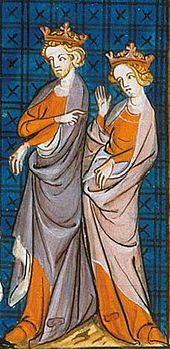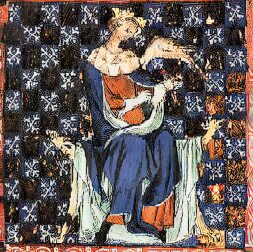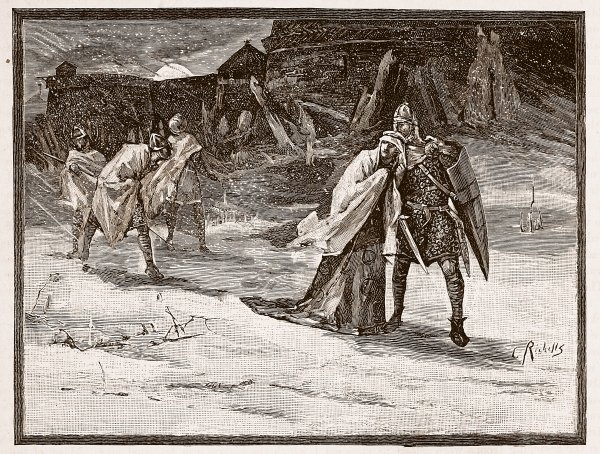After the exchange of prisoners (mentioned in Part 2)—Robert of Gloucester for King Stephen—the war between Stephen and Matilda went back and forth with no one in control of the whole country. Matilda's husband, Geoffrey of Anjou, was busy gaining and holding the King of England's provinces on the continent while Matilda ran her military campaigns in England.
In 1147, Matilda brought her and Geoffrey's eldest son, Henry, on another unsuccessful invasion of England. Although Henry was only 14, he became convinced and determined that his mother should be recognized as queen. Henry was an impressive youth. His great-uncle, King David I of Scotland, knighted him in 1149. His father made him Duke of Normandy a year later, when he was still only 17. Shortly after that, he made one of the most famous marriages in the Middle Ages, when he wed the powerful Eleanor of Aquitaine (who was about 10 years older than Henry) after she left her husband, King Louis VII of France, and brought the province of the Aquitaine with her.
 |
| Henry & Eleanor |
Then, worse for Stephen, was the death of his son and heir, Eustace. Henry had returned to England with a small invasion force in 1153, and Stephen could not manage to corner him or defeat him. In August of that year, Eustace died suddenly—we do not know the cause. According to the chronicler William of Newburgh, the king was devastated:
grieved beyond measure by the death of the son who he hoped would succeed him; he pursued warlike preparations less vigorously, and listened more patiently than usual to the voices of those urging peace.Actually, a treaty had already been broached earlier that summer, but Eustace had opposed it. Now, with Eustace no longer providing opposition and the future of Stephen's dynasty insecure, the Treaty of Wallingford was re-visited. It was made formal and ratified in November. The agreement was that Stephen would remain on the throne until his death (which came just a year later, in October 1154), after which Matilda's son would take the crown as Henry II. Henry was crowned on 19 December, 1154. His 35-year reign would have its ups and downs, but he would be recognized as a great king.
As for the Empress who would be Queen: she retired to Rouen. She died in 1167 and was buried at the Abbey of Bec-Hellouin in Normandy. Her body was later re-interred at Rouen Cathedral, where her epitaph reads: Great by Birth, Greater by Marriage, Greatest in her Offspring: Here lies Matilda, the daughter, wife, and mother of Henry.



